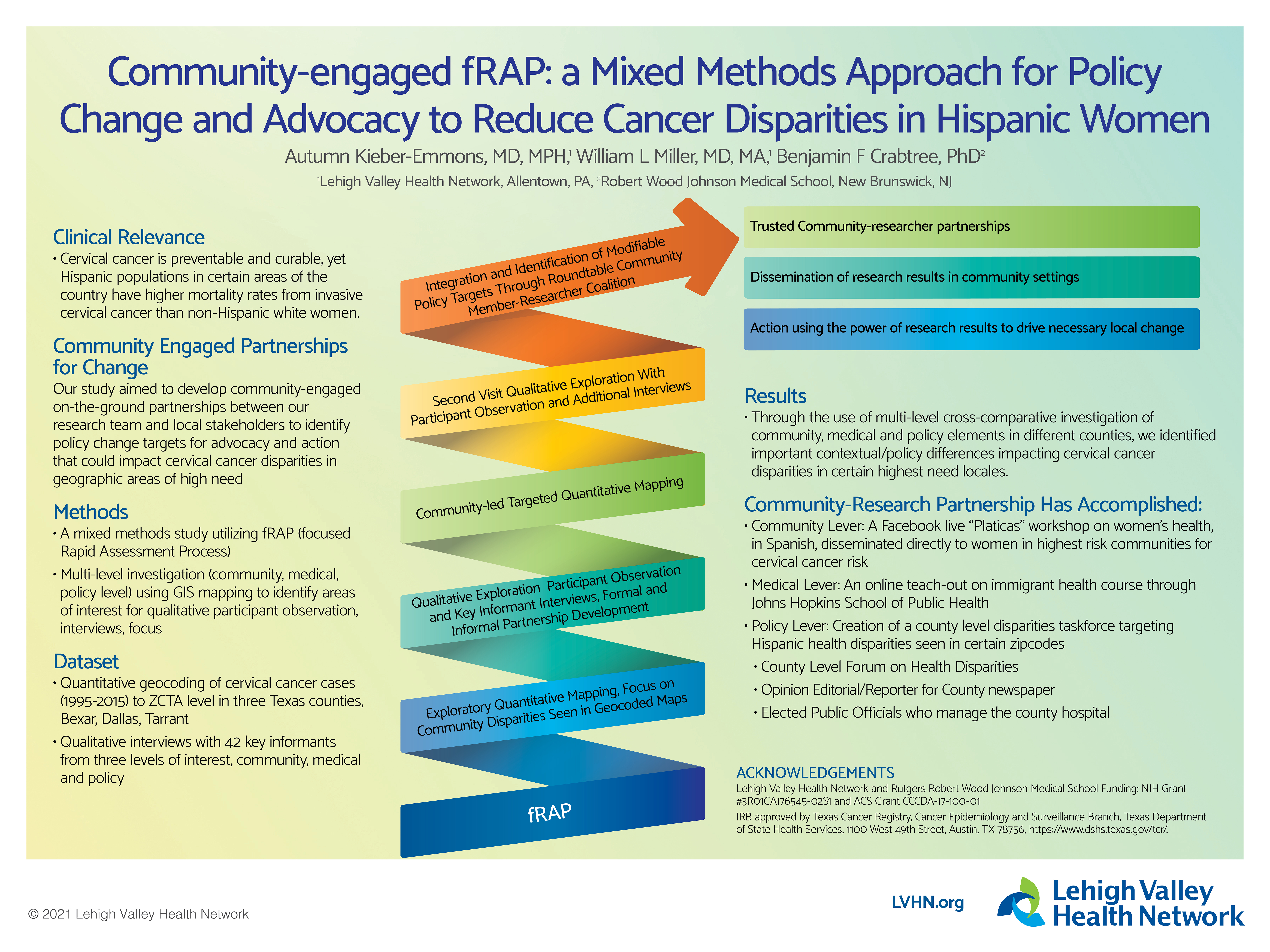PCR018: Community-engaged fRAP: a mixed method approach for policy change and advocacy to reduce cancer disparities in Hispanic women
Autumn Kieber-Emmons, MD, MPH; Benjamin Crabtree, PhD; William Miller, MD, MA
Abstract
Context: Cervical cancer is preventable and curable, yet Hispanic populations in certain areas of the United States have higher mortality rates from invasive cervical cancer than non-Hispanic white women. Objective: Our study aimed to develop community-engaged on-the-ground partnerships between our research team and local stakeholders to identify policy change targets for advocacy and action that could impact cervical cancer disparities in geographic areas of high need. Study Design: This mixed methods study utilized a community-engaged fRAP (focused Rapid Assessment Process) methodology to uncover modifiable differences in cervical cancer survivorship contributing to mortality differences at the county level. This poster highlights the final advocacy for change phase of the fRAP process, where we work in partnership with local community stakeholders to identify actionable steps targeted at local policy change through advocacy. Setting: This American Cancer Society funded project included ZCTA level mapping of cervical cancer cases alongside qualitative data in three Texas counties (Bexar, Dallas and Tarrant) over the last three years. Population studied: This study included data obtained from the Texas Cancer Registry for cervical cancer cases in the three counties from 1995-2015, along with 39 key informant interviews identified during fieldwork visits representing different levels of interest: community, medical systems, policy. Outcome Measures: We examine multi-level community, medical, and policy contextual elements within three counties using quantitative ZCTA level mapping to identify areas of interest for qualitative investigation. Qualitative investigation then proceeds with iterative cycles of community participant observation and mapping until saturation of themes is determined. Results: Through the use of multi-level cross-comparative investigation of community, medical and policy elements in different counties, we identified important contextual/policy differences impacting cervical cancer disparities in certain highest need locales. An online teach-out on immigrant health, a Facebook live “Platicas” workshop on women’s health, and a county level disparities taskforce are one county’s action steps to improve cervical cancer outcomes. Conclusions: Community-engaged fRAP effectively identifies local policy change targets for advocacy, with the goal for sustained community-engaged action aimed at decreasing cervical cancer disparities.

Jack Westfall
jwestfall@aafp.org 11/19/2021love the poster. got my attention. followed by a great study and abstract. Thanks